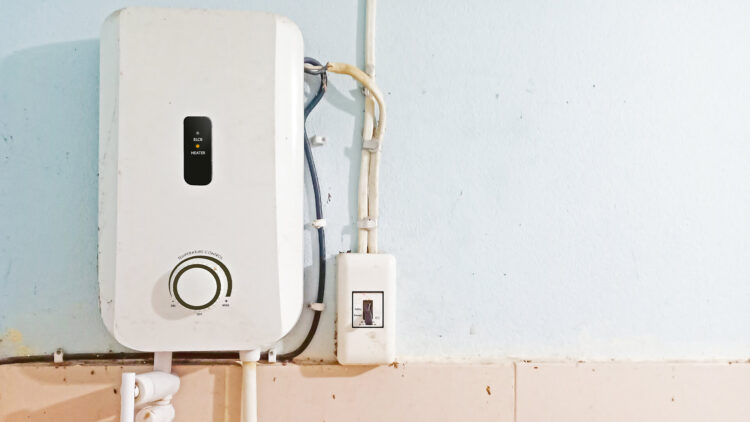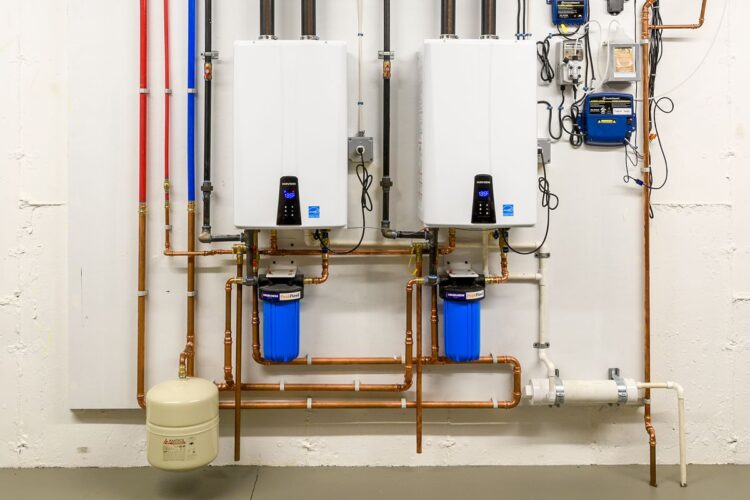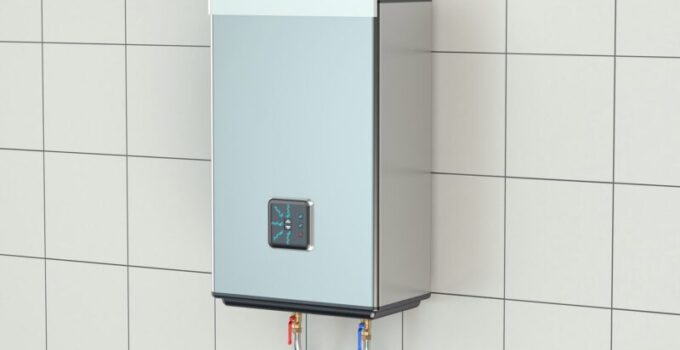Tankless water heaters can be installed safely in a mobile home, but you may need to change your wiring or gas configuration. Interested in learning more about installation?
If your mobile home lacks the necessary wiring and gas lines to adapt to the tankless water heater, you may need to install them. A tankless water heater is a great feature to have in your mobile home but it is still ok if the question, are tankless water heaters safe for mobile homes still come up in your mind. Here are a few things to consider. Check this site.
The first step is to understand the modifications that must be made to accommodate the tankless heater. The water heater will not work properly if the gas and electric lines are not properly installed. You will lose a significant investment. In addition, when researching tankless water heaters, inquire with manufacturers about HUD-approved options for manufactured homes. It is important to understand that some tankless water heaters are not suitable for mobile homes. Once you’ve found a HUD-approved model, you’ll need to decide whether you want an interior or an exterior model.
Your tankless water can stay in any room, however, you need to ensure that the room you are installing this system has a direct vent that leads to outside walls and ceiling made of 5/16″ or thicker gypsum board. Electric models, on the other hand, necessitate a dedicated circuit.
Because mobile homes are plumbed for specific water heaters, they can be challenging to replace, which means that the cost of mobile home-specific water heaters is significantly higher. In addition, mobile home water heaters differ from standard water heaters in a couple of ways.
Another thing to remember is that electric tankless water heaters will have specific installation requirements. For starters, they require new breakers. This allows for a higher amperage level. You will need to speak with a local electrician to get this done. Costs vary, but the electrical portion of the project should cost about one-third of the total cost of the water heater.
Page Contents
Pros of Tankless Water Heaters

Source: build-review.com
-
Zero Risk of Tank Exploding
According to today’s plumbing code, all tank-style water heaters should have a temperature and pressure relief valve that opens to release pressure and prevent the tank from exploding. However, minerals and sediment from the water can clog the valve over time, preventing it from working correctly.
It’s important to note that dangerous pressure levels can build up when this happens, putting you in danger. Experts recommend testing the valve on a tank-style water heater at least once a year. Explosion is one of the few risks that come with tank-style water. While this is not something that happens always, using a tankless water heater may be a better option. Tankless heaters do not have a tank; hence, there is no chance of an explosion ever happening. One less thing to be concerned about!
-
Long-term Energy and Cost Saving
One of the most impressive benefits of using a tankless water heater is that it can help save energy and therefore reduce how much you pay for electricity in the long run.
A tank-style water heater uses energy 24 hours a day, 7 days a week, to keep a 40 to 50-gallon water supply at the desired temperature so that hot water is available when needed.
As the name implies, tankless water heaters heat water only when needed and do not keep a supply of water on hand. As a result, tankless water heaters avoid standby heat loss, which occurs when heat escapes the water tank and requires constant reheating by only heating water when it is needed.
-
There little exposure to toxic metal and low risk of burn
When a faucet, shower, or appliance is turned on, cold water is routed through the tankless water heater and heated by either a gas-fired burner or electric coils. After being heated, hot water flows through the pipes and out the tap, showerhead, or any other outlet in your home (note that this happens in seconds).
-
Take Up Less Space

Source: thisoldhouse.com
Tankless water heaters are a great benefit because space is restricted in your mobile home. When compared to tank-style water heaters, they are more or less mounted to the wall and take up significantly less physical space. Here is how the two types of water heater looks like. A typical 40 to 50-gallon tank-style heater is 54 to 60 inches tall with a 20-inch diameter and is shaped like a cylinder.
The average tankless unit is 27 inches tall, 18 inches wide, and 10 inches deep, and it is rectangular. Also tank-style water occupies the floor space and are usually found in the basement. In contrast, tankless heaters are mounted to the wall like a circuit breaker and can fit in most closets.
-
Lower Risk of Leaks and Water Damage
When considering the possibility of water damage, the issue of whether gas water heaters are safe can be answered positively. As previously stated, one of the most severe risks with tank-style heaters is the accumulation of minerals from hard water within the tank, which leads to corrosion and, eventually, leaks. There is no risk of leaks or flooding with tankless water heaters because they do not have a tank.
Conclusion
The question, are tankless water heaters safe for mobile homes persist because we cannot say that tankless water heaters are without flaws. In fact, it is possible to ask the question, are tankless water heaters safe at all. The truth is that tankless water heaters will encounter problems resulting in leaking. Still, the chances of a major leak flooding your entire basement and causing significant damage are slim.





